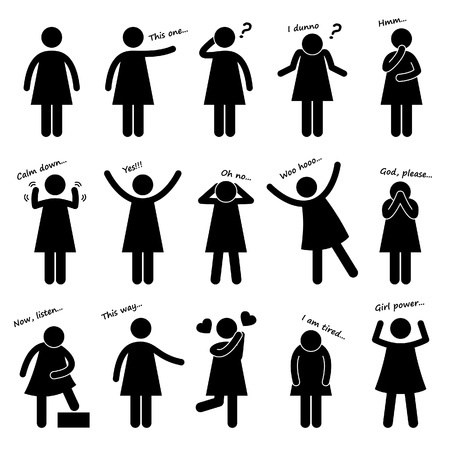Body language: Fact or fiction?

Ah, body language: the desperate cannon fodder of conspiracy theorists, romantics and over-analysts like myself. We all think about it more than we’re willing to admit. He just grazed my elbow— does he love me? Why is she looking at my left eyebrow while she talks? WHERE ARE HIS FEET POINTED?
Alas, nonverbal communication and “tells” aren’t an exact science (at least, not yet). This hasn’t stopped psychologists and analysts from dedicating their livelihoods to the study of foot-pointing and elbow-touching. Since their findings aren’t justifiable without a shadow of doubt, it’s up to us to decide: Can subconscious tells be trusted?
Let’s discuss.
Tell #1: If someone points their feet toward you, they’re subconsciously interested in you and want to approach you.
Oh, what a beautiful world it could be if the direction of your pedicure disclosed all the secrets of the universe. There are surely situations in which this assertion holds true; if you’re standing and speaking with a group of people, the one person everyone seems angled toward is probably the center of attention. However, many hear that foot-pointing could signal attraction and ogle the sneakers of a zoned-out kid across the room, thinking his resting position indicates some deep dark desire. This, I fear, can’t possibly be. When not actively involved in conversation, we tend to situate ourselves in the most comfortable (though hopefully respectful) way. Our feet, therefore, end up wherever necessary to put the least strain on our muscles. Be that as it may, if your secret flame seems to point your way from across the class tomorrow, buy into the hype by all means. I’m nothing if not a hopeless romantic.
Tell #2: Liars always avoid eye contact.
If possible, this accusation became so accurate that it can no longer be trusted. As terrible as it sounds, a good liar will make a point to stare you down as they string you along, knowing eye contact is a universal mark of sincerity. Besides, plenty of people avoid your gaze for other reasons; it could mean anything from shyness and anxiety, to lack of focus or even a freakish pimple on your forehead. Sometimes, it can even mean they’re attracted to you and therefore intimidated by your stare, or are trying to conceal said attraction by seeming uninterested. Of course, the opposite could also be true; they might just not care. Don’t you love ambiguity?
Tell #3: Crossed arms signal that a person is unreceptive and closed off, possibly even angry.
Have you ever stood with your arms crossed? It’s so comfortable. You’re warmer, calmer, more confident and it solves the age-old struggle of not knowing what to do with your arms. Yes, if you’re angry, it’s the best position to assume, but it doesn’t always mean you’re upset (like how a square is a rectangle, but a rectangle isn’t always a square). Let’s be honest, though: in today’s day and age, crossed arms bear such a negative connotation that most people avoid the stance altogether, often only using it only when they want to appear agitated.
Tell #4: Fast-talkers shouldn’t be trusted.
As a very hyper and socially anxious person, I am offended. I’d like to think fast-talkers simply form images in their minds at a rate faster than their speech can match, therefore talking faster to try and catch up. And besides, are you trying to tell me that all the great rappers of our time are perjurers and con artists? Eminem and Ludacris are as honest as Abe and don’t you try to convince me otherwise. In the spirit of fairness, though, I must admit the facts. A clumsy liar gets easily anxious and a seasoned professional might over-prepare, both of which result in quick speech chock full of unnecessary detail. Fast-talking is also a stealthy asset in glossing over details, a tactic I’m sure we all can admit to.
Tell #5: Body language is 93 percent of communication.
I get what they were trying to do here, but come on. I cannot walk up to my monolingual Lebanese grandmother and explain quantum physics by gesturing aggressively and maintaining eye contact. 93 percent? Have words and themes and rhetoric lost all meaning? May as well drop AP Language and Composition now, then. While a speaker’s demeanor in their delivery is certainly important to the overall effect, one can not reasonably assert that posture makes or breaks an argument.
Hopelessly vague social cues leave so much lost in translation that, when you need to make your feelings known, it’s probably best to use your words. Unless, of course, you have a crush you’re too nervous to admit, in which case foot-pointing is definitely the way to go.

